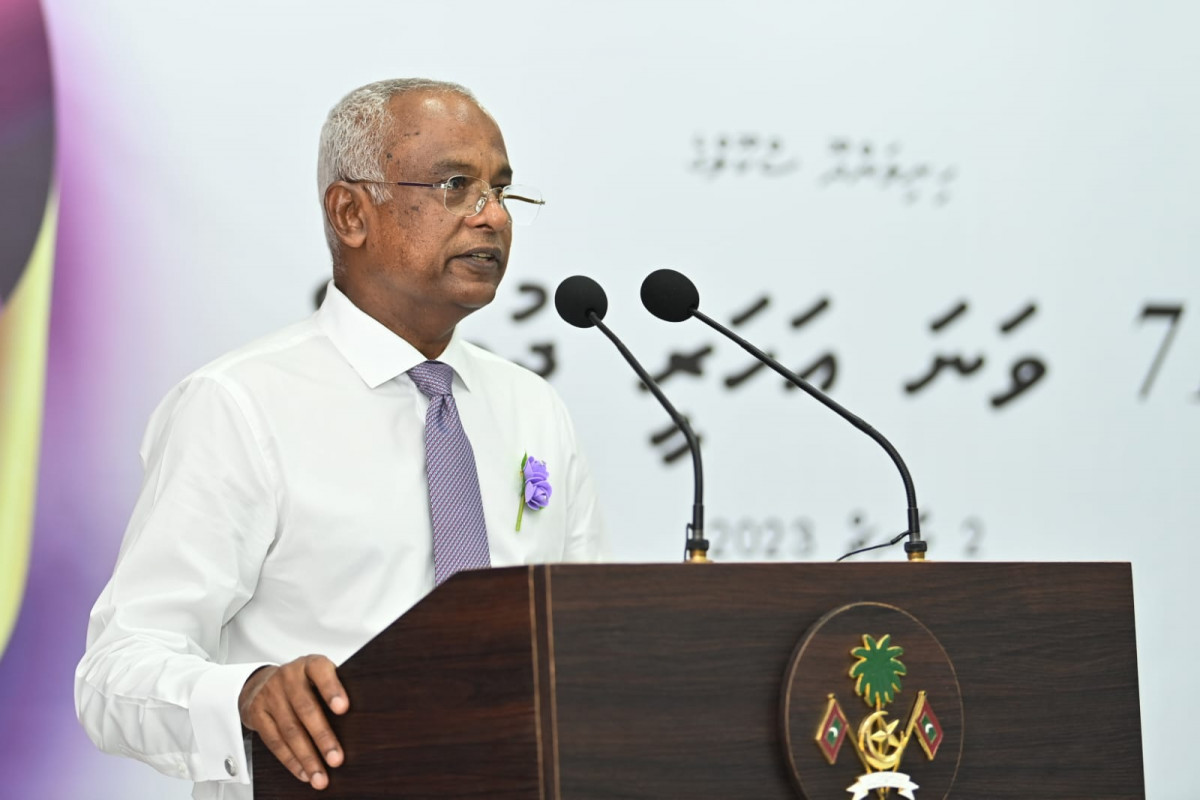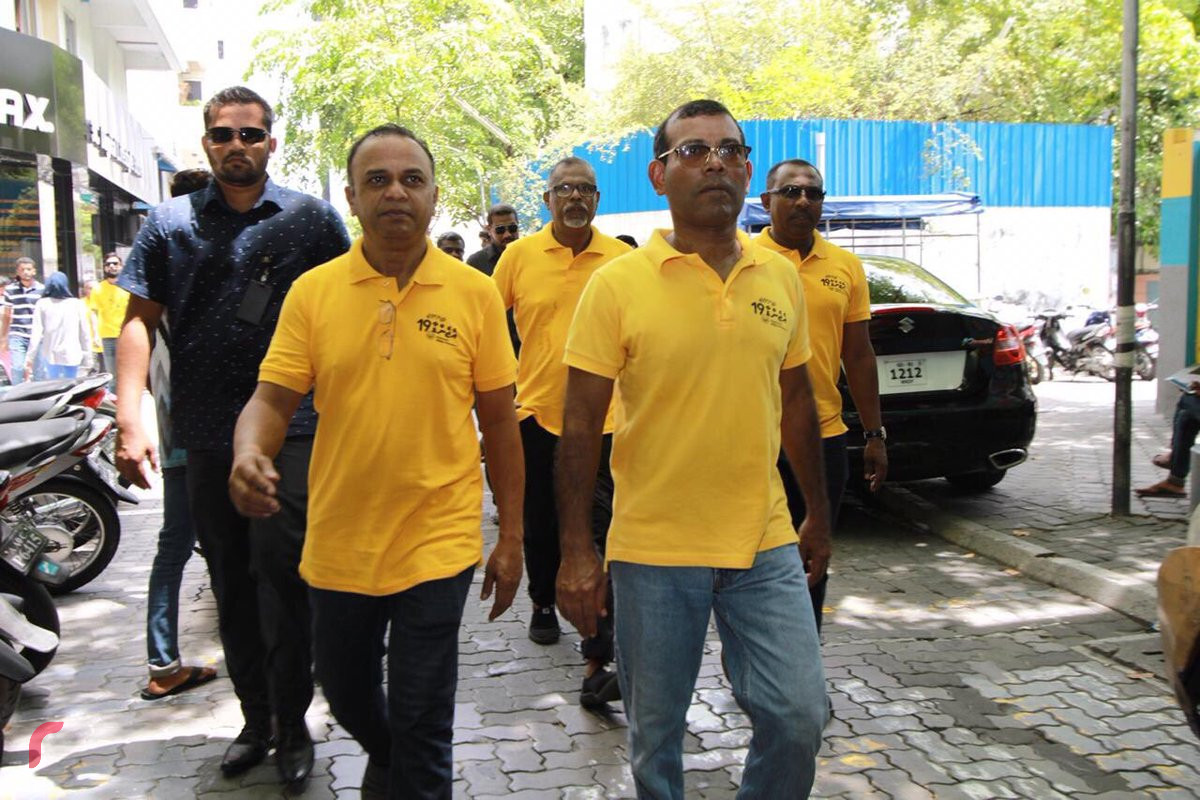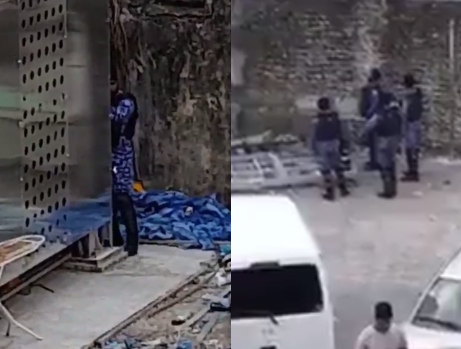MDP's Zaya summoned by police over social media post
Zaya was confronted by police and had her phone confiscated over a social media post allegedly threatening police

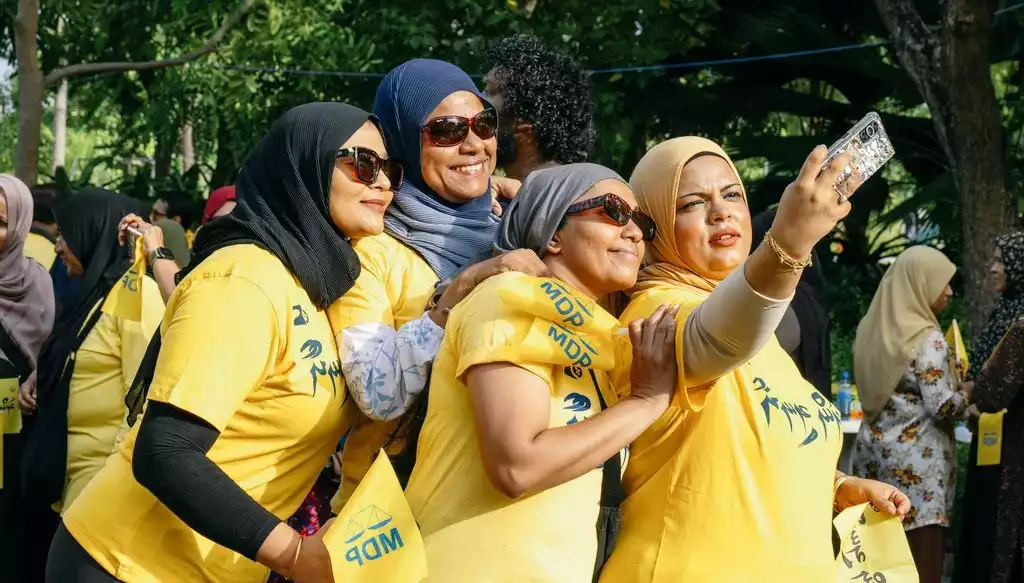
Fathimath Zaya (L) at an MDP activity
Fathimath Zaya, a National Congress member of the main opposition Maldivian Democratic Party (MDP), was summoned by the Maldives Police Service (MPS) on Tuesday night in connection with a social media post allegedly targeting the police institution. The authorities also confiscated her mobile phone under a court order.
Zaya was stopped by police in the early evening while on her way to a clinic in the capital Malé City with her child. Approximately fifteen officers confronted her near Ahmadiyya School and Dhondheeni Preschool, an area crowded with school children and parents at the time. She was ordered off her motorcycle and subjected to a physical search, along with a search of her belongings and vehicle. Her phone was then seized.
Later that night, she was summoned to the Galolhu Police Station, where police obtained her phone password through a second court order.
Zaya, who heads MDP’s North Hulhumalé constituency branch, has raised concerns about the psychological impact these actions have had on her children, noting that this is not the first time police have conducted such operations in their presence. A previous late-night police raid on her apartment had similarly affected her younger child.
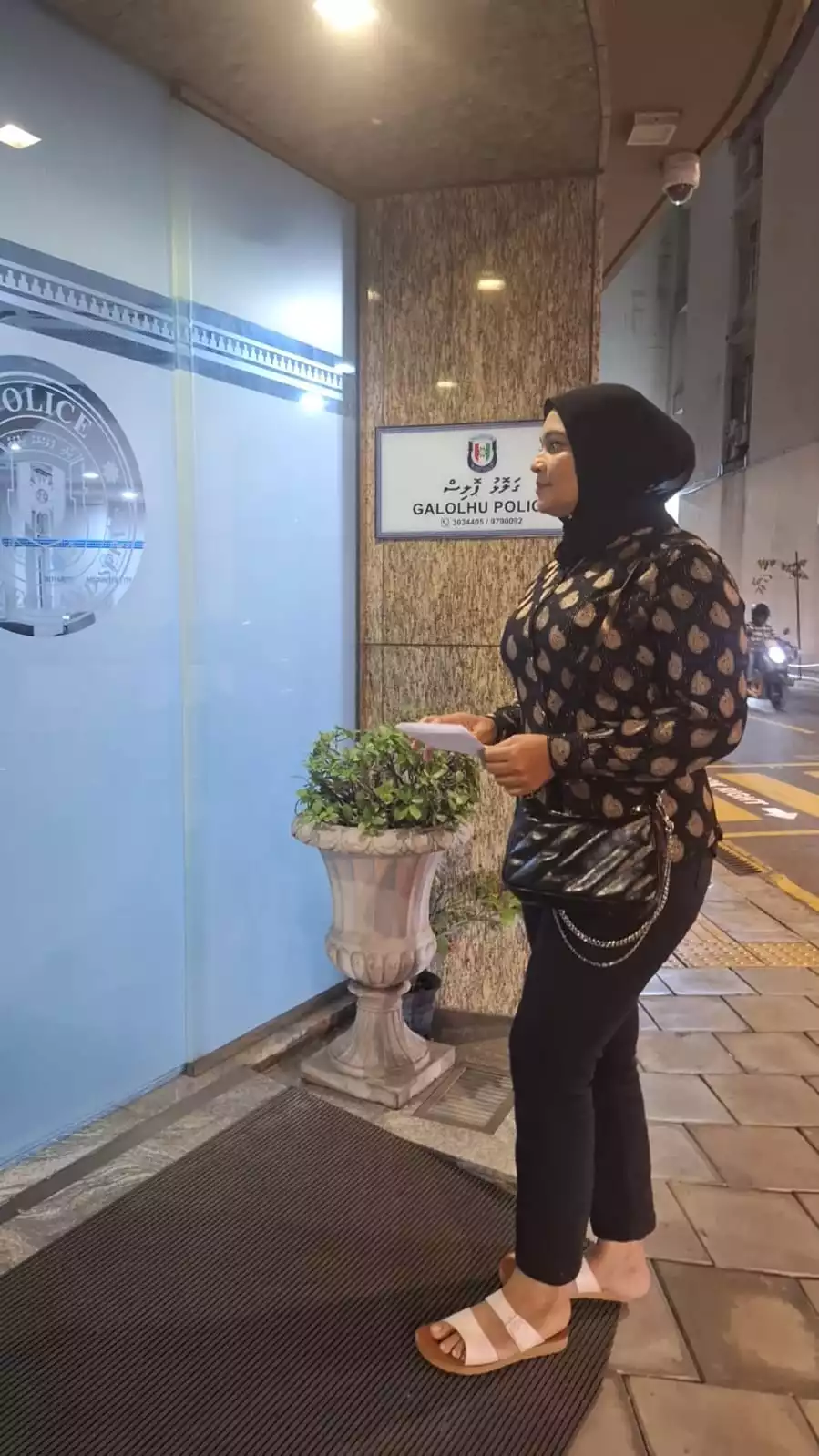
The police action appears to be linked to a Facebook post attributed to Zaya, in which she made a veiled reference to preparing chili spray ahead of November 17, a remark widely interpreted as a satirical response to recent police aggression. Authorities, however, are treating the post as a potential threat.
Zaya’s treatment by police follows her participation in an MDP protest on Friday night, during which she was reportedly pepper-sprayed three times. She has stated that her eyes have yet to fully recover from the incident.
According to the search warrant provided to Zaya, the police are investigating alleged threats made to the police institution through her Facebook account on the night of 4 October 2025. The warrant authorized the search and seizure of her phone to obtain evidence related to the case.
This incident is the latest in a growing pattern of confrontations between the state and opposition figures, raising renewed concerns over the use of state power to suppress political dissent and intimidate activists through legal and procedural overreach.


